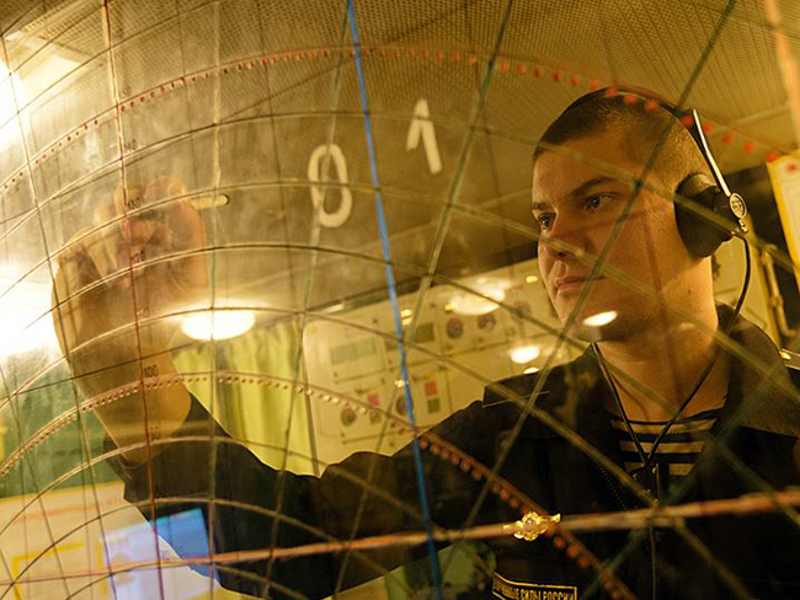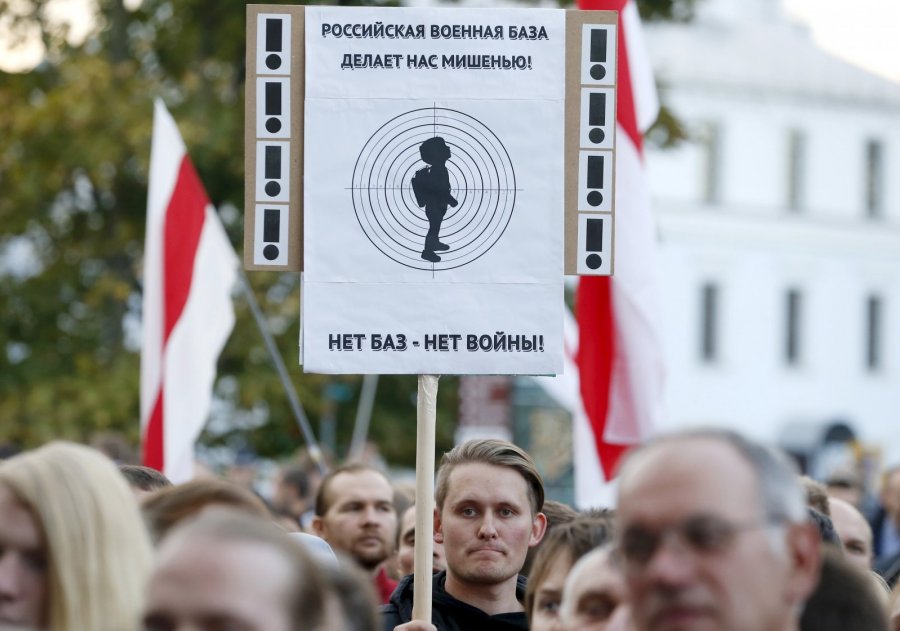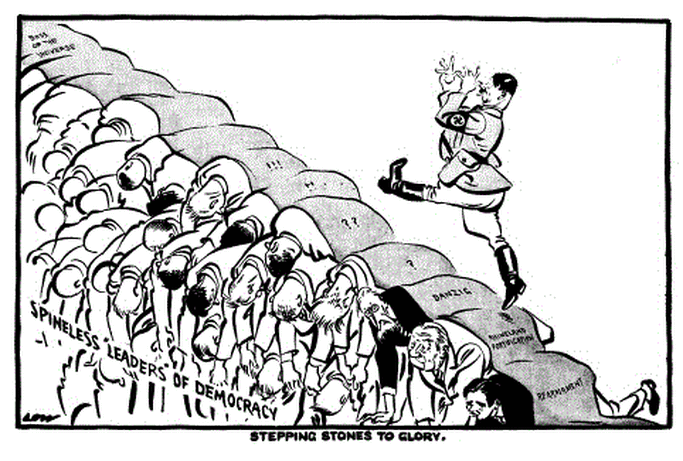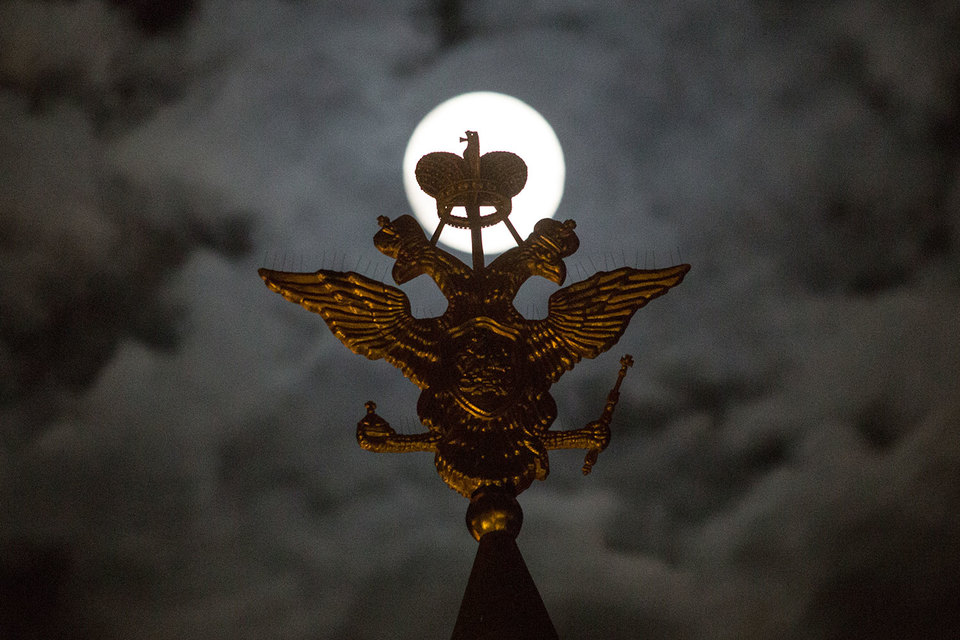The militaristic hysteria the Kremlin has unleashed in order to frighten the West and win support at home “does not have real causes and looks like an improvisation by the leader and his advisors” tragically is “getting out of control” and could by itself lead to disaster, according to Rosbalt commentator Sergey Shelin.
He says that anyone following the Russian media is forced to conclude that Russia is on the brink of war with the West even though there are no obvious objective reasons for that to happen and even though Russian officials recognize that such a conflict would be a disaster not only for the West but even more for Russia.
“Analysts,” Shelin argues, “are also people and seek in everything a rational basis and thus try to present even impulsive improvisations as a wide and well-thought-out strategy,” even when, as now, the real situation and hence the real explanation are otherwise.
Because of the desire to find a rational core in what is going on, he continues, “the most popular explanation for the sudden outburst of Kremlin militarism is reduced to the notion that it is about ‘trading in fear,’” making threats so that Russia’s opponents will decide it is better to back down than to resist.
To be sure, Moscow can “frighten” the West, “but what real political benefit does it want or can it offer in exchange?”
Analysts should be looking at both the objective and subjective side of what is going on, Shelin says, arguing that there is nothing on the objective side that would justify Russia’s going to war:
- Moscow has absorbed the cost of sanctions and is learning to live in a new reality. There is thus no immediate need to seek their end.
- As far as Ukraine is concerned, no one ever expected the Minsk Accords to be fulfilled; and they aren't being and won't however much Moscow blusters.
- And as for Syria, Russia is more tied down there than ever before, and one has to ask: “What would the fall of Aleppo give Moscow, if indeed that happens?” The Turks, the Americans and the French wouldn't leave the region, the war in Syria wouldn't end. And “the main beneficiary would be not Moscow but Tehran and its vassals – Damascus and Hezbullah.”
Another explanation being offered for the Kremlin’s militaristic tone, he says, is that the Russian people want war. But polls show that “there is no mass military enthusiasm today,” despite what appears on television. “By experience, we know,” Shelin says, “that the masses will accept any zigzag of the highest leadership,” but there are no chances for a repetition of “the ‘Crimean ecstasy,’” whatever anyone says.
Given that there aren't any objective causes for going to war, the Rosbalt commentator says, one needs to consider the subjective ones – and they really exist, albeit “only in the minds of our highest leadership which is disappointed that America doesn't respect” it, that “Türkiye and Iran are playing their own games, and even meek Europe is behaving in a tough way.”
Military spending did go up earlier but now it is likely to be cut, and that pattern undercuts the notion that the Kremlin is really engaged in preparations for war in order to instill fear in the West. But in fact, Shelin argues, the two things – the militaristic propaganda and the cutbacks in defense – are not as contradictory as they might appear.
And the reasons for that conclusion, he says, are to be found in certain underlying realities, however unpleasant they may be for some to recognize. Even if Moscow did everything it could to build up its military force in Syria, it would hardly likely to be able to achieve much.
“Syria is not Afghanistan, and the Russian Federation is not the USSR,” Shelin points out. Russia simply doesn't have the possibility of fighting on an equal basis “with all the West and a large part of the Islamic world. One can speak only about size of its political-military bluff, how far it will go, and whether it will go out of control.”
Everything points to that, and thus the real question now is how will the Kremlin react in the coming weeks when its denizens finally discover that the West has ceased to be intimidated and will not yield as Putin and his entourage expect.
Related:
- Putin and Russia both far weaker than many think, three analysts say
- Anti-Americanism is 'cult of Putin's Russia' with all the consequences thereof, Pastukhov says
- Putin likely to expand Russian invasion of Ukraine in January, Felgenhauer says
- Historic PACE resolutions condemn Russian aggression, rule out elections in occupied Donbas
- Russia preparing for war in the media but not in the budget, Moscow commentators say





